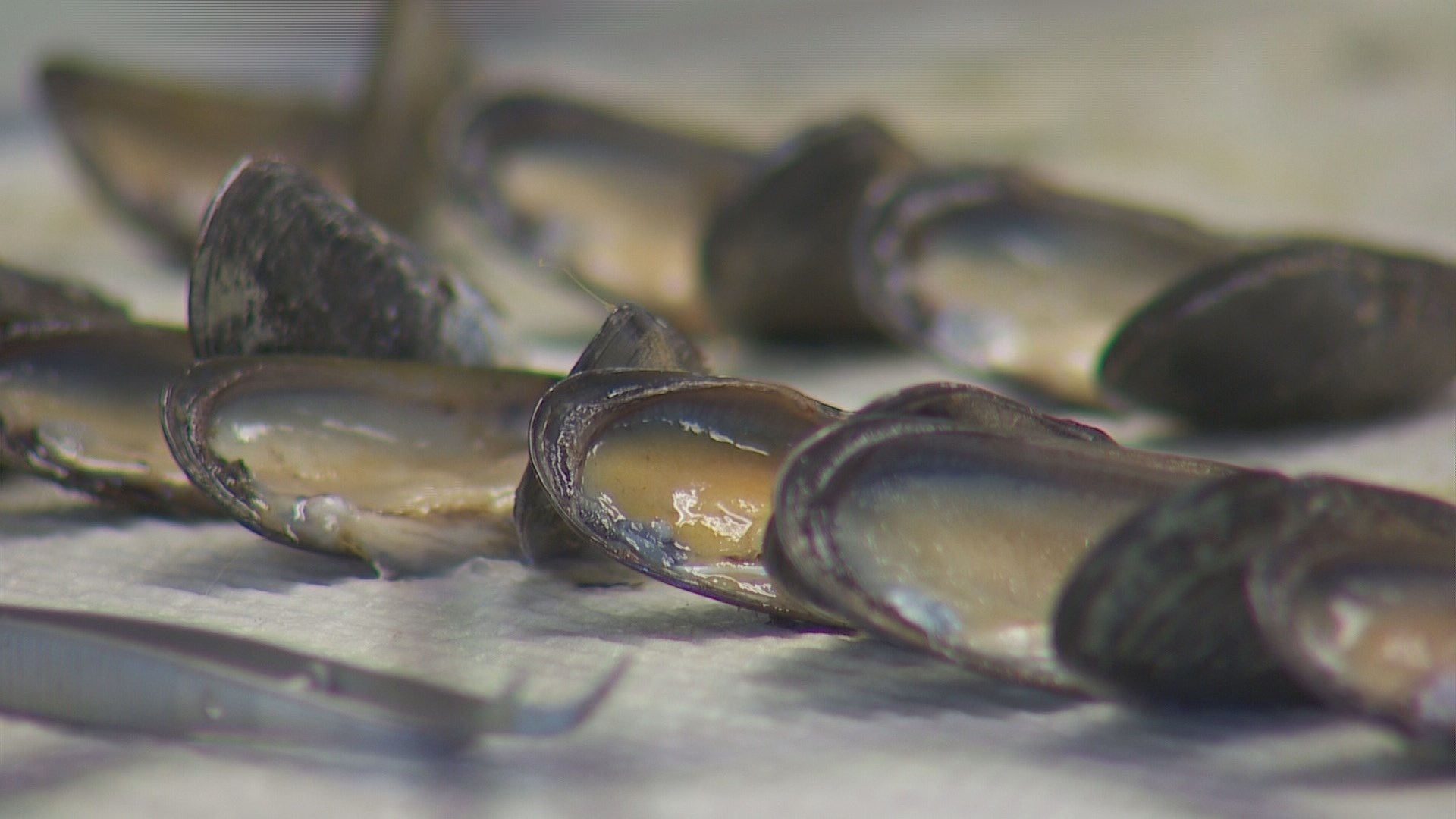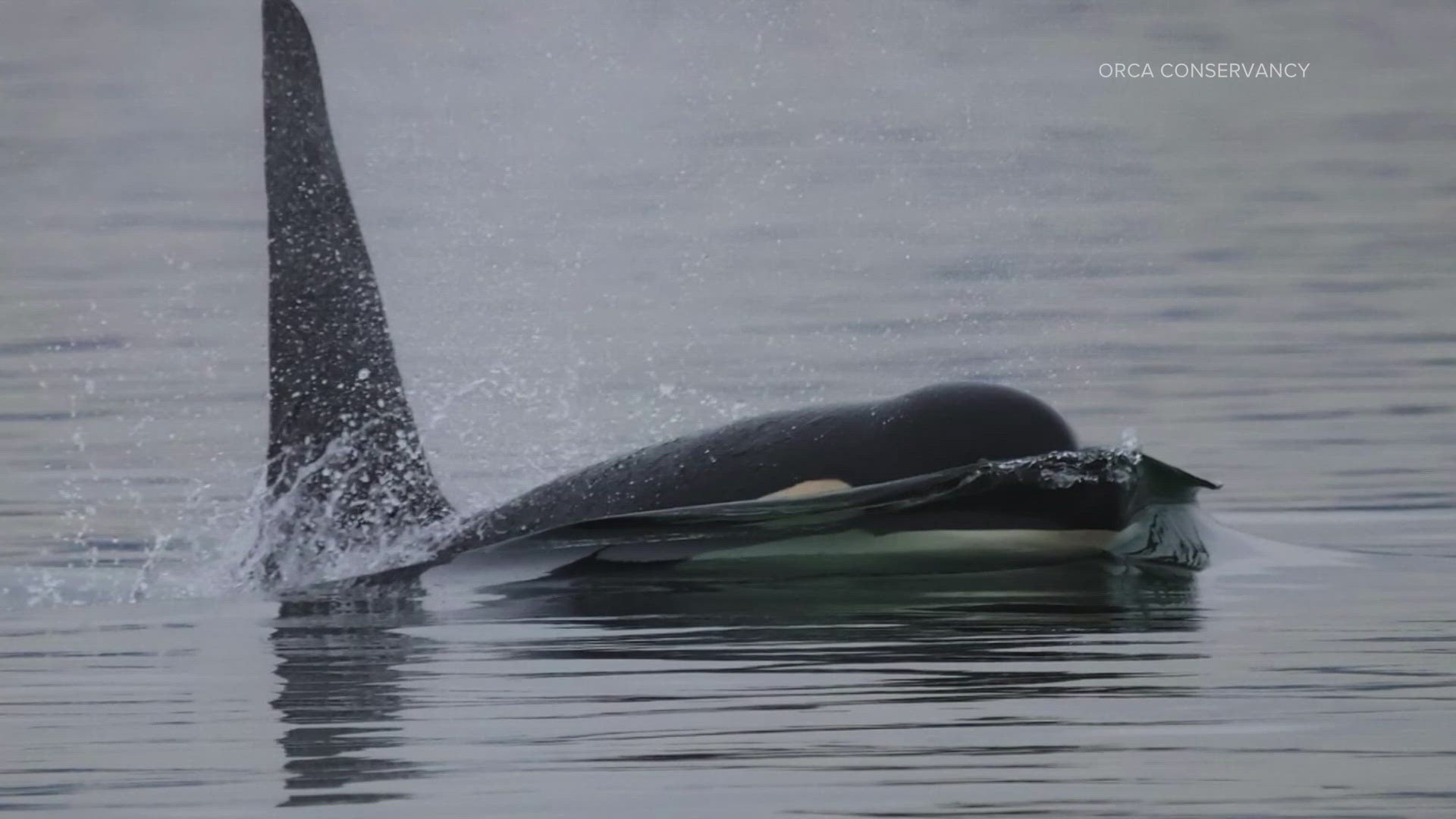Volunteers will spread out across Puget Sound on Friday night to install cages filled with mussels, which will help scientists track the health of the ecosystem.
"They will be zip tied to sides of the cage, and they will sit there suspended above the bottom," said Puget Soundkeeper Alliance Executive Director Chris Wilke.
A top cover keeps predators out, and for 90 days, water will flow through. It allows for scientists to record contaminants over a larger period of time and compare to past results.
The mussels are donated by Penn Cove Shellfish and the cage placement is done almost entirely thanks to volunteers.
"If we come down here today and take a sample of this water, all that tells us is what's in the water today," Wilke said. "This is one air shed, one watershed. What goes up in the air comes down in the water, as well as the stuff that comes off our cars, our streets, parking lots and rooftops."
The water in Salmon Bay around Ballard is some of the most toxic in Seattle.
"The water is moving pretty fast through this channel but as you get closer to shore here you can see the water is moving in the opposite direction," said WDFW Research Scientist Jim West. "This is where the water slows down and any particulates in the water that have contaminants with them kind of settle out here."
Mussels are just one species used for water quality testing, West says. Mussels are filter feeders and contaminants will deposit in their tissue. They'll end up in labs where scientists will test them for toxics.
"If we don't do this work, we don't know if the hundreds of millions of dollars we're spending on clean-up is actually working or not," West said. "We have this toolbox of species that we use to tell us throughout Puget Sound where the contamination is occurring and whether it's getting better or worse."
The science may start with the mussels but it will help protect wildlife as big as killer whales.
The work requires a significant amount of volunteers. If you're interested in getting involved, visit the Puget Soundkeeper Alliance's website.


